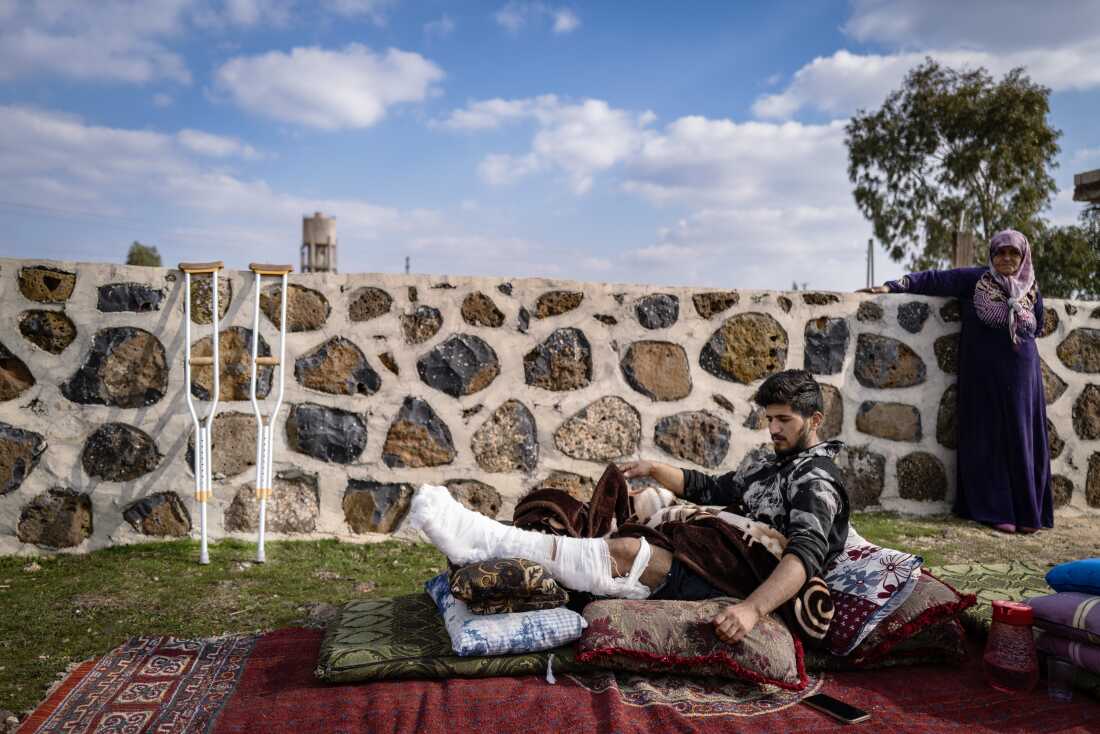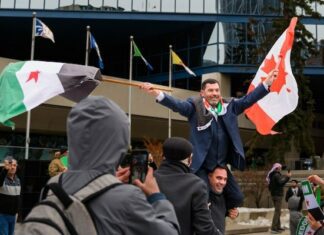
Recent Israeli military incursions and the establishment of military bases in southern Syria have sparked growing concerns among local communities and international stakeholders. The situation has escalated following the fall of the former regime of Bashar al-Assad on December 8, 2024, as Israeli forces have expanded their operations into Quneitra and Daraa provinces, drawing condemnation from the Syrian Caretaker Government (SCG) and prompting appeals to the international community.
Arrests and Clashes in Quneitra
On January 24, Israeli forces arrested a Syrian civilian and injured another in the vicinity of the town of Kodna, located in Quneitra Governorate. According to local reports, two men were collecting firewood when Israeli soldiers opened fire, wounding Hamza al-Tahhan and detaining his relative. Hamza sustained minor injuries and was transferred to a nearby medical center. However, the whereabouts and condition of the arrested individual remain unknown.
Activists and local residents have linked the shooting incident to Israeli efforts to bulldoze lands and cut down trees in the Kodna forest. Civil activist Saeed al-Muhammad told Al-Araby Al-Jadeed that the two young men had objected to these activities before the Israeli forces intervened with force. He also revealed that six shepherds from Quneitra were detained by Israeli troops near the occupied Golan Heights on January 23, accused of “potential links to Hezbollah and Iran,” before being released with warnings not to approach the border.
Expansion of Military Presence
Israeli military activity and illegal occupation have intensified in the region, with construction underway on six new military bases in Quneitra. Five of these are within the buffer zone established under the 1974 disengagement agreement, while one is outside it, near Kodna. Bases have also been reported in areas such as Jabata al-Khashab, Hadar, and near the al-Mantara Dam.
According to local sources, Israel is also fortifying its presence by building watchtowers equipped with advanced surveillance technology across multiple villages, including Hader, Jabatha, Umm al-Azam, and Saida. These developments suggest a strategic effort to consolidate Israeli control over key locations in southern Syria.
Al-Muhammad noted that Israel has intensified “inspections” in the occupied villages, with patrols entering homes and securing routes for military operations. Despite repeated appeals from residents to Syria’s new leadership and the international community, there has been no significant intervention to halt Israel’s advances.
The Strategic Importance of the Yarmouk Basin
Further west, in Daraa Governorate, Israeli forces have been observed installing electricity poles and paving roads near the border with Jordan. The Yarmouk Basin, a region of strategic importance due to its proximity to the triple border of Syria, Jordan, and the occupied Golan Heights, has seen increased Israeli interest.
Daraa 24 new outlet reported that Israel’s recent infrastructure developments suggest plans to entrench its military presence in the area, leveraging its advantageous position for security and economic purposes. The Yarmouk River, a critical resource for agriculture and trade, is key to the region’s significance in Israel’s regional strategy.
Syrian Government’s Response
The Syrian Caretaker Government (SCG) has condemned Israel’s incursions, with officials calling for immediate international intervention. Ahmad al-Sharaa, the leader of the new Syrian administration, stated in an interview with Turkey’s A Haber that Syria remains committed to the 1974 agreement and is willing to welcome UN peacekeeping forces to restore pre-occupation conditions.
“Israel advanced into the buffer zone under the pretext of Iranian militias in Syria, a justification that no longer holds after Damascus’ liberation. We are ready to welcome UN forces to restore the situation to what it was before,” said al-Sharaa.
Foreign Minister Assad al-Shaibani echoed these sentiments, reaffirming Syria’s commitment to international agreements while urging the UN and friendly nations to pressure Israel to withdraw. “With Hezbollah, the Assad regime, and Iranian militias no longer a factor, Israel must respect Syria’s sovereignty and cease interference,” al-Shaibani stated.
Meanwhile, UN Special Envoy for Syria Geir Pedersen has also weighed in, asserting that Israel’s occupation of Syrian territory is “absolutely unacceptable” and urging Washington to push for a withdrawal. “It is time for Israel to end its operations and withdraw from Syrian lands,” Pedersen said.
Regional Implications
The growing tensions between Syria and Israel have raised concerns about further instability in the region. Analysts suggest that Israel’s actions could be aimed at establishing a long-term presence in southern Syria, capitalizing on the power vacuum left by the fall of the Assad regime.
Despite diplomatic appeals, the situation on the ground remains tense, with continued Israeli military operations and infrastructure expansion. The SCG has called on the international community to hold Israel accountable and ensure Syria’s territorial integrity is respected.
For now, civilians in Quneitra and Daraa remain on edge as Israeli forces consolidate their grip on strategic areas, heightening fears of prolonged occupation and displacement.








